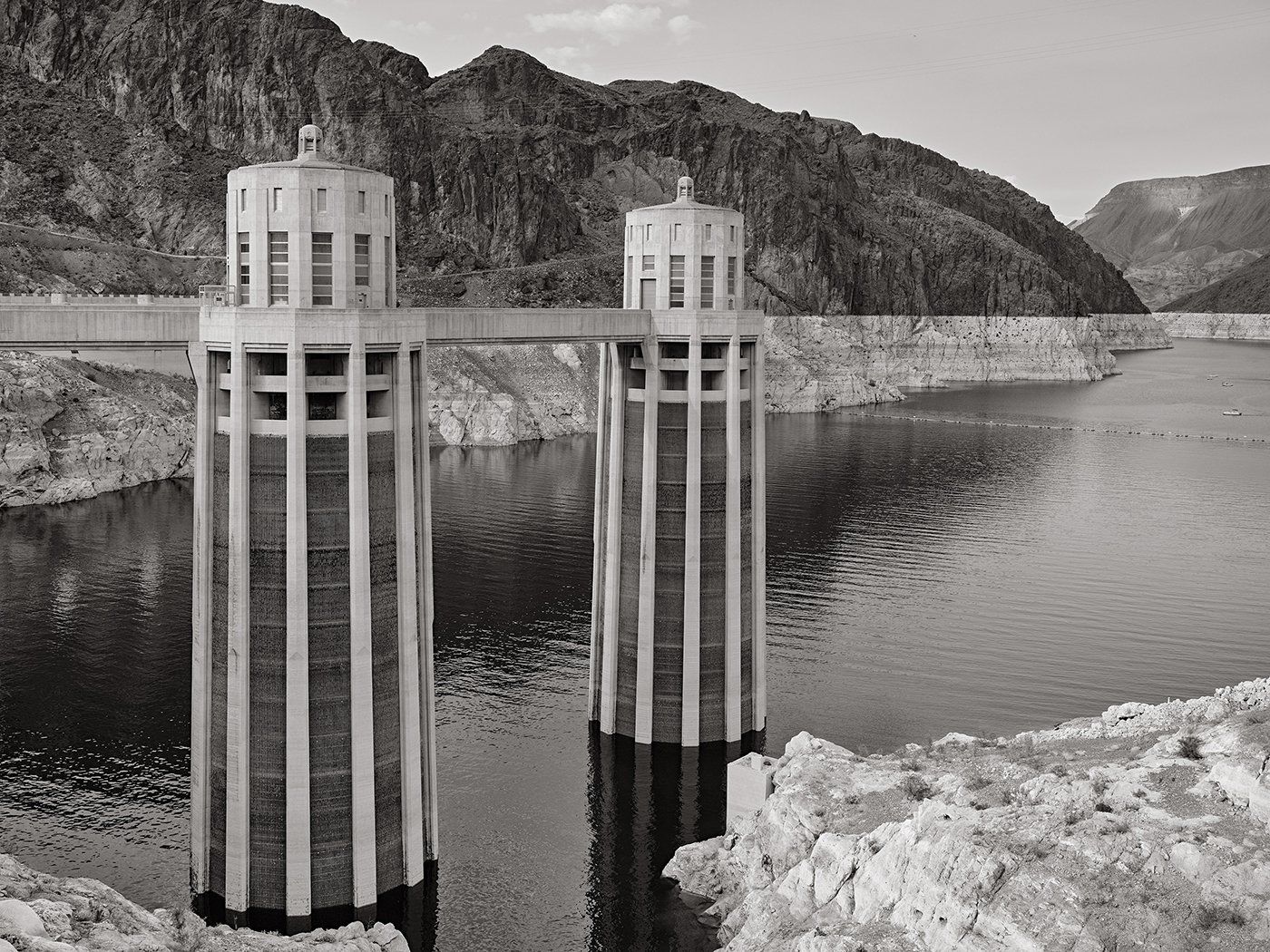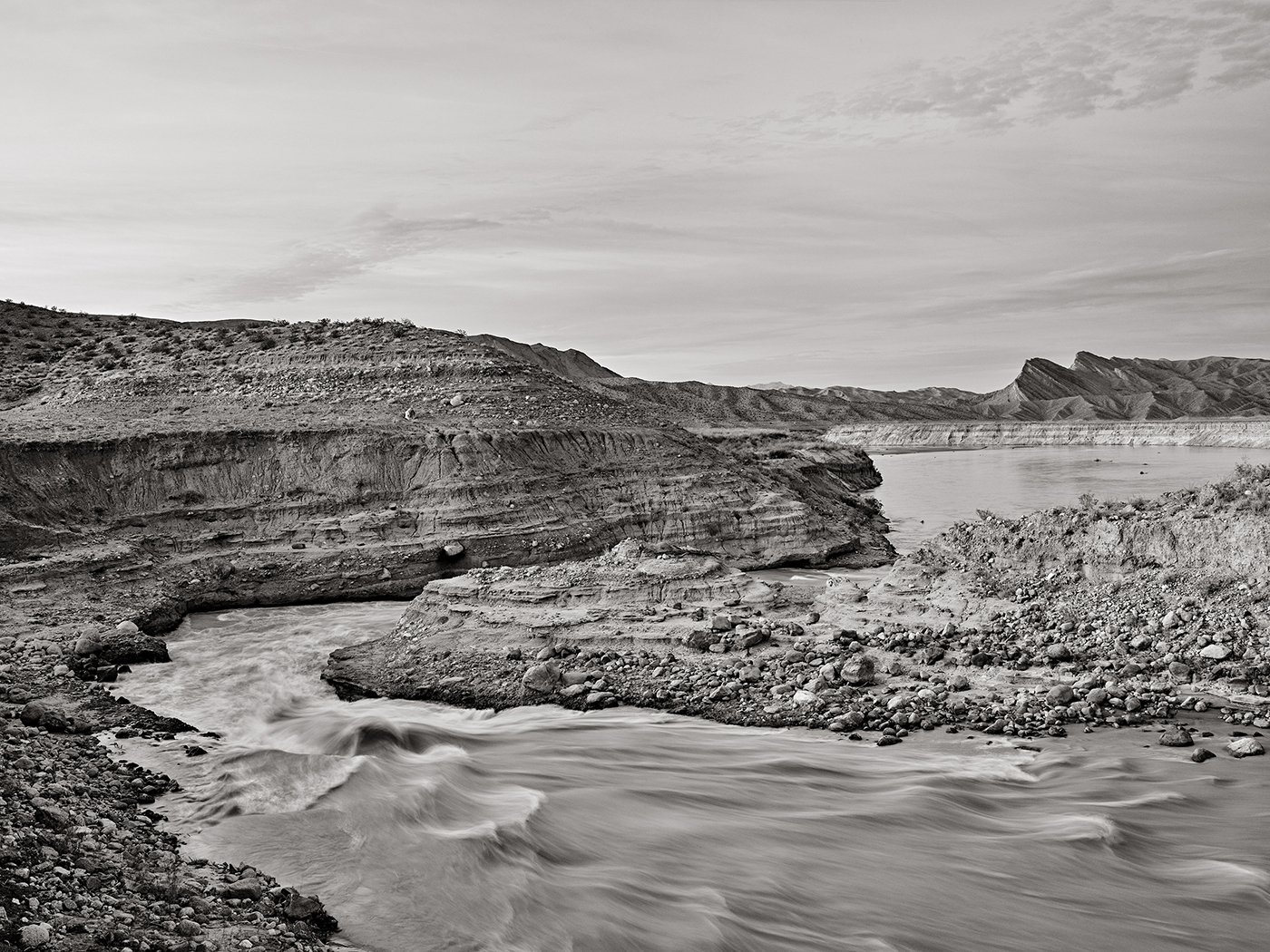




-
The project is based around the historic low water levels at Lake Mead—the United State's largest reservoir to illustrate the historical conflict and balance between environmental conservation, recreation, and the realities of supporting sprawling cities and agriculture in places with so little water.
Mark Twain said, “Whiskey is for drinking, and water for fighting over.” The Colorado River in the Southwestern United States has been the center of that struggle for over 100 years. To coincide with the 100th anniversary of the 1922 Colorado River Compact, this project examines the history and future of the Colorado River and settlement in the Southwest. The photographic aspects of the project mainly revolve around Lakes Mead and Powell, and secondarily my personal family and religious history of westward migration. Underlying the whole project is the legacy of Manifest Destiny, the almost supernatural draw of the Southwest, how 20th-century Reclamation projects made living there possible, and how climate change is already threatening the future of the 40 million people who are now dependent on the Colorado River for water and power. Through incorporating historical data and appropriated imagery, I also aim to bring to light how John Wesley Powell’s recommendations for responsible settlement of the West were ignored in the interest of politicians and speculators. Powell, the lake's namesake, was the leader of the first recorded expedition on the Colorado River through Utah and Arizona’s unmapped areas and later became the 2nd Director of the US Geological Survey. While his expedition down the Colorado River gets the most attention, his 1875 “Report on the Arid Region of the United States” is too often overlooked. In it, he argued there was not enough water in the Southwest for the widespread agriculture and settlement that eventually took place. His report and recommendations to Congress were ignored, and western settlers were promised that “Rain will follow the Plow.” Those early homesteaders were lied to and unprepared for a landscape that couldn’t support an Eastern agricultural model and soon faced the consequences of politicians not listening to the scientists of their time—something we are still dealing with in the face of climate crisis now.
